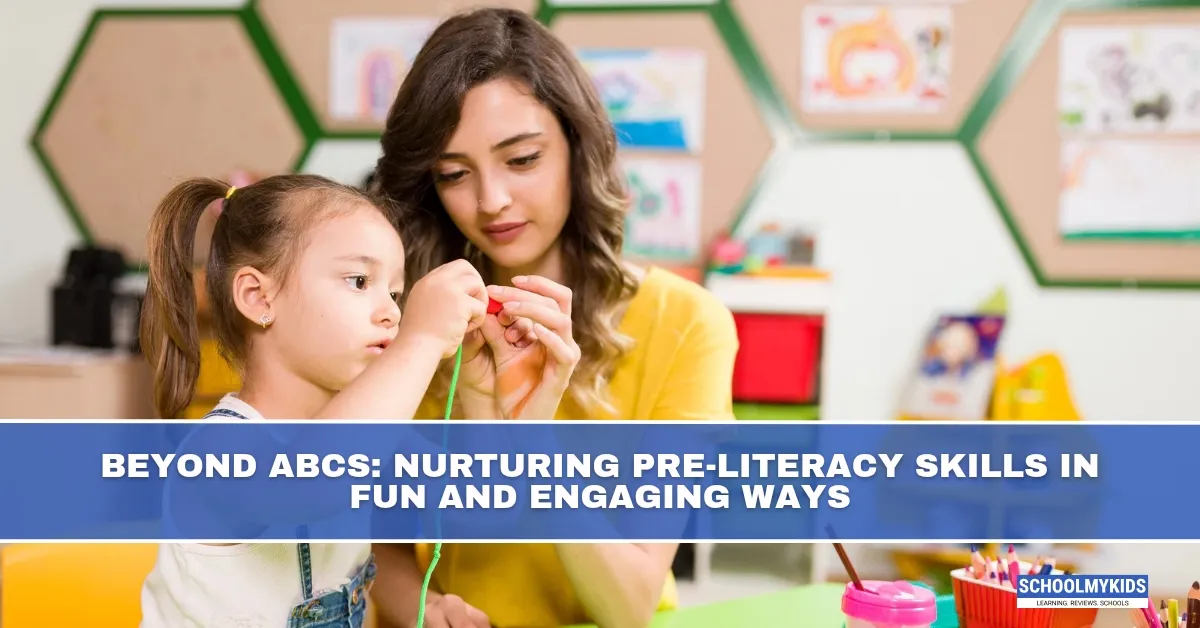If you're like most of us, you probably feel that gentle pressure to make sure your kid is "ready for reading" before they start school. But here's the thing – nurturing pre-literacy skills doesn't have to mean flashcards and formal lessons that leave both you and your child frustrated. In fact, the most effective approaches are usually the most playful ones!
What Are Pre-Literacy Skills (And Why They Matter)
Before diving into the ABC song or letter recognition, there are more fundamental skills that create the foundation for reading success:
- Phonological Awareness: This is your child's ability to hear and play with the sounds in words.
- Vocabulary Development: The more words your child knows, the easier reading will be later.
- Print Awareness: Understanding that those squiggly marks on the page have meaning.
- Narrative Skills: The ability to understand and tell stories.
- Letter Knowledge: Recognizing letters and understanding they represent sounds (this comes later in the pre-literacy journey).
Now, let's look at some genuinely fun ways to nurture these skills without making it feel like "work" for either of you!
Playful Ways to Build Phonological Awareness
Phonological awareness is probably the biggest predictor of reading success, but it's also one of the most fun skills to develop!
- Rhyme Time: Instead of just reading rhyming books, make up silly rhyming games. "I spy something that rhymes with a bear!" (chair). Or play the rhyming name game while driving: "Hannah Banana," "Jake the Snake," and "Mom the Bomb."
- Syllable Stomping: Help your child "hear" the parts of words by stomping, clapping, or jumping for each syllable in their name or favorite words. "Di-no-saur" gets three jumps!
- Sound Scavenger Hunt: "Can you find something in the kitchen that starts with /m/?" (milk, microwave, mug). For younger kids, exaggerate the first sound: "Can you find something that starts with mmmmmmm?"
- Silly Sound Swapping: Change the first sound in familiar words during everyday conversations. "Time for binner!" (instead of dinner) or "Let's put on your doat" (instead of coat). See if your child notices and wants to play along.
Building Vocabulary Through Real Experiences
Kids learn words best in context, not from flashcards or apps!
- Narrate Your Day: Simply talk through what you're doing. "I'm whisking the eggs until they're fluffy." This naturally introduces rich vocabulary during everyday activities.
- Wonder Walks: Take walks where you both just notice and wonder about things. "Look at how those leaves are fluttering in the breeze!" This builds observation skills and vocabulary simultaneously.
- Kitchen Helpers: Cooking together provides incredible vocabulary opportunities. "Let's sprinkle the cinnamon." "Can you help me measure the flour?" Plus, the sensory experience helps cement the new words.
- Feelings Talk: Help your child develop emotional vocabulary beyond just "happy" or "sad." "You look frustrated with that puzzle," or "You seem disappointed that it's raining." This emotional literacy actually supports reading comprehension later.
Developing Print Awareness Organically
- Environmental Print: Point out logos and signs your child already recognizes – the Target bullseye, stop signs, or their favorite cereal box. This shows them that print carries meaning.
- Text Messaging: Let your child dictate text messages to family members while you type. They'll see their spoken words turning into written text!
- Recipe Reading: Follow simple recipes together, pointing at the words as you read them aloud. Even if they can't read yet, they'll begin to understand that the words tell you what to do.
- Label Love: Put simple sticky note labels on some objects around your home. The connection between the written word and the actual item makes print meaningful.
Building Narrative Skills Through Conversation
- Photo Chat: Look through photos together and ask open-ended questions that encourage storytelling: "What do you remember about that day at the beach?"
- Story Sequencing: After reading a familiar book, ask your child to tell you what happened first, next, and last.
- Storytelling Prompts: Use simple prompts that spark the imagination: "What if our cat could talk? What would she say about our day?"
- Family Stories: Share simple stories from your own childhood or family history. This not only builds narrative skills but also creates connections.
Introducing Letters When They're Ready
When your child shows interest in letters (often around age 3-4), try these approaches:
- Name Power: Start with the letters in their name, which are naturally most interesting to them.
- Sensory Writing: Let them practice writing letters in shaving cream, salt trays, or finger paint.
- Letter Hunt: Go on a "letter hunt" in your home or neighborhood, looking for letters they recognize.
- Digital Balance: There are great alphabet apps available, but limit screen time and balance with hands-on experiences.
Conclusion
The most important thing to remember is that your connection with your child is what makes learning stick. If an activity creates stress or frustration, let it go and try something else later. The joy of discovery together is what builds lifelong learners!
Pre-literacy skills develop over several years, so there's no need to rush. By weaving these playful activities into your daily routines, you're building a strong foundation for reading success without creating pressure for you or your child.








Be the first one to comment on this story.